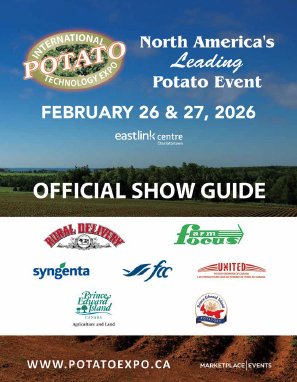November 12, 2014
/CHANGES TO N.S. ENVIRONMENT’S WATERCOURSE ALTERATION PERMITTING PROCESS . . . IS THAT A LARK I HEAR? A NIGHTINGALE? SURPRISE! IT'S A BAT . . . OIL AND AGRICULTURE: WHAT’S THE CONNECTION? . . . SHOULD THE FDA REGULATE THE USE OF “NATURAL” ON FOOD PRODUCTS? . . . OTHER NEWS OF INTEREST...
CHANGES TO N.S. ENVIRONMENT’S WATERCOURSE ALTERATION PERMITTING PROCESS
Source: NSFA
Did you know there have been changes to N.S. Environment’s watercourse alterations process that could have an impact on your farm? Effective October 1, 2014, the submission requirements for some watercourse alterations changed from applications for approval to notifications. Watercourse alterations refer to activities that alter the bed or bank of a fresh water body, such as installing a crossing. Activities that do not alter the bed or bank of a watercourse will not require any submission to Nova Scotia Environment. The department will be hosting an information session December 5. (read more)
IS THAT A LARK I HEAR? A NIGHTINGALE? SURPRISE! IT’S A BAT
Source: NPR
Bats produce “pings” or “clicks,” right? They make these high-pitched sounds, too high for us to hear, but when their cries ricochet off distant objects, the echoes tell them there’s a house over there, a tree in front of them, a moth flying over on the left. And so they “see” by echolocation. That’s their thing. They are famously good at it. (read more)
OIL AND AGRICULTURE: WHAT’S THE CONNECTION?
Source: FCC
Weaker economic data is coming out of China, Europe, and Japan. A jittery world economy, combined with a large available supply of oil, has put pressure on oil prices. The West Texas Intermediate price benchmark has declined nearly 25 percent from a peak in June. Energy accounted for about 10 percent of Canada’s economy (as measured by gross domestic product) and nearly 20 percent of Canada’s exports in 2013. Hence lower oil receipts can definitely impact the health of the Canadian economy. But what does this mean for Canadian agriculture? (read more)
SHOULD THE FDA REGULATE THE USE OF “NATURAL” ON FOOD PRODUCTS?
Source: New York Times
Though the “organic” label has been strictly defined and regulated since 2002, the Food and Drug Administration has declined to define the frequently used term “natural.” The FDA’s nonbinding advisory opinion states that “natural” means “nothing artificial or synthetic (including colors regardless of source)” or anything in the product that “would not normally be there,” but this opinion cannot be legally enforced. (Crystal Light Natural Lemonade, for instance, has artificial color but no lemon in its ingredients.) (read more)
OTHER NEWS OF INTEREST
CANADIAN WASTE TO RESOURCE CONFERENCE
http://www.canwastesectorsymposium.ca/
ATLANTIC CANADA’S SALMON FARMING INDUSTRY IS “JOB CREATION MACHINE”
http://www.intrafish.com
P.E.I. NUTRIENT MANAGEMENT SOFTWARE TRAINING SESSION
http://peifa.ca/peifa-today-monday-november-10-2014
NUTRIENT MANAGEMENT PLANNING IN NOVA SCOTIA
http://www.nsagrologists.ca/News-and-Events


















